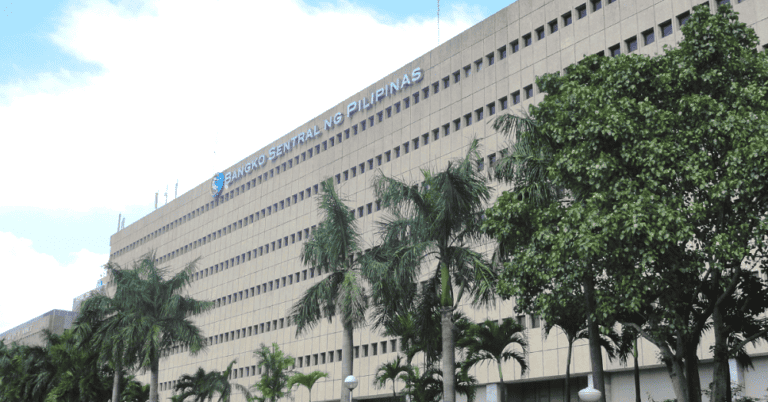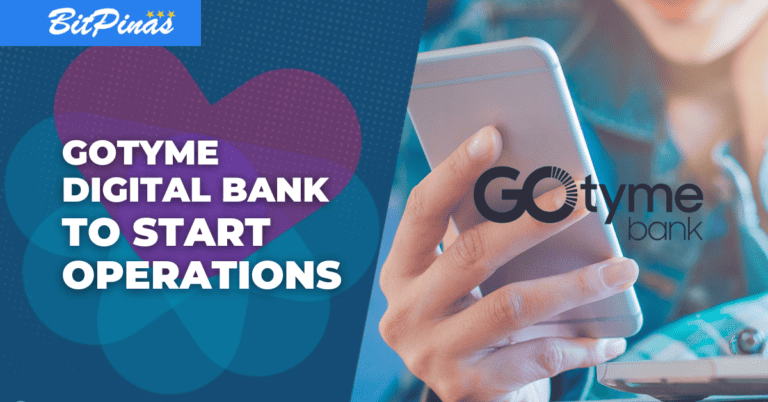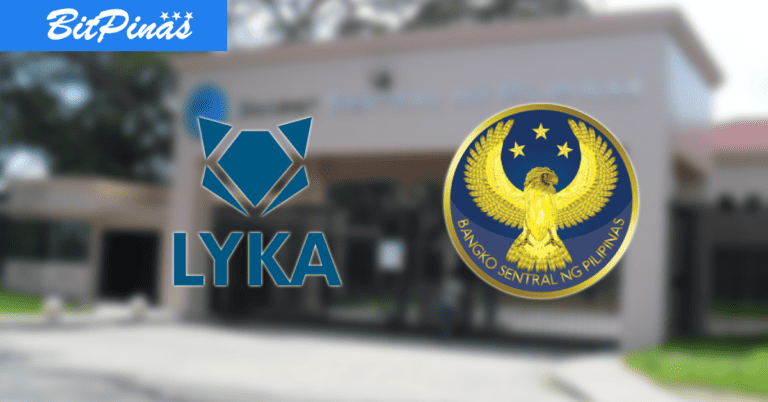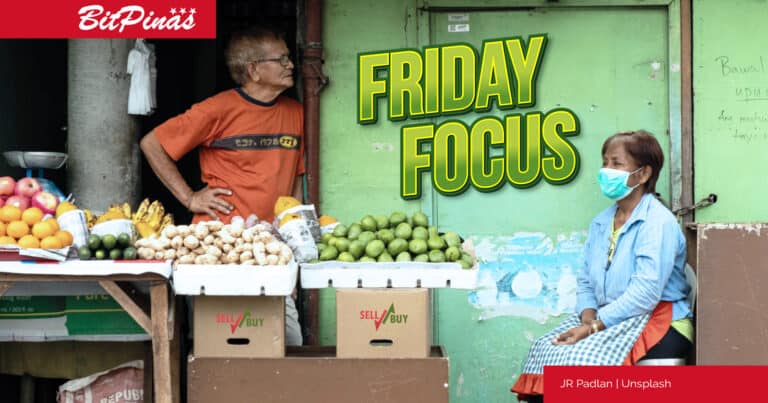CBDC Impact on Crypto in the Philippines | BitPinas Webcast 23
Check out our episode notes, highlights, and summary of the webcast: Impact of CBDC on Crypto in the Philippin

What is the CBDC Impact on Crypto in the Philippines?
In our webcast, “Is CBDC Good for Crypto in the Philippines? A Conversation with Atty. Rafael Padilla,” we discussed the implications and potential impact of Central Bank Digital Currencies (CBDCs) on the cryptocurrency landscape in the Philippines.
Watch the video here:

With the Bangko Sentral ng Pilipinas (BSP) initiating its pilot CBDC project, Project Agila, questions loom large about how this could reshape the financial ecosystem.
Guest Speaker: Atty. Rafael Padilla, the leading Blockchain and Fintech Lawyer, and author of “Fintech: First Laws and Principles,” joins us to share his legal and technical insights into this complex issue. Atty. Padilla is also a regular contributor to BitPinas.
Topics Covered – CBDC Impact on Crypto in the Philippines:
- What are CBDCs and why is the BSP interested in them?
- The technology behind Project Agila and why Hyperledger Fabric was chosen as its Distributed Ledger Technology.
- How could CBDCs affect existing cryptocurrencies and blockchain initiatives in the Philippines?
- Are CBDCs a boon or bane for the burgeoning crypto community in the country?
- Future prospects for CBDCs both locally and internationally.
Episode Notes:
CBDC 101: From a Lawyer’s Perspective
- Earlier this month, the Bangko Sentral ng Pilipinas (BSP) rebranded its wholesale CBDC pilot system Project CBDCPh to Project Agila. Alongside its rebrand, the central bank also confirmed that it will use a distributed ledger technology (DLT) and it chose Hyperledger Fabric.
- “Ang traditional notion kasi natin ng mga central bank currencies are the notes and coins issued by the central bank. But in view of the technology and inspired by Bitcoin, it was proven that it is possible to issue token-based digital currencies,” Padilla said about the idea of a central bank issuing a token-based digital currency in the form of CBDC.
- Padilla shared that as early 2015 to 2016, then Bank of England Governor Mark Carney was very vocal about CBDCs, this was the reason why other central bankers realized the potential use case for blockchain technology.
- Also, the lawyer explained that since the rise in popularity of cryptocurrencies during the 2017 bull run, more central bankers have viewed it as CBDC preparation.
- “We can also view CBDC as basically a payment system that allows value to be transferred and this value is of course a government-issued to the central bank legal tender.”
- For Padilla, a CBDC system does not have to be a blockchain or a DLT, but because of the inspiration of Bitcoin, a number of private-permissioned blockchain platforms advocate using permission ledgers in using CBDCs, which influenced central bankers.
- The lawyer also cited some authors prefer calling a CBDC a digital fiat, which for him is more appropriate.
Is CBDC a Stablecoin?
- “In terms of similarities, one similarity is the value is more stable, but of course it is stable because you pegged it to a certain currency, so of couse, it is going to be constant. But if you are going to peg the price of the currency to other commodities, then some of these government-issued currencies will also be volatile,” the lawyer explained.
- There is also another similarity between CBDC and stablecoin, according to Padilla, which is being centralized, as some stablecoins like USDT and USDC are controlled by a centralized entity.
- “But one important difference of a CBDC to a stablecoin is that the CBDC is publicly issued, it is issued by a government, a central bank, or a monetary authority. On the other hand, a stablecoin is a private-issued, while a CBDC is a fiat currency simply as a currency substitute.”
Why Do Monetary Agencies Keen to Have CBDCs?
- As of September 2023, 131 out of 195 countries around the world have already explored, researched, developed, piloted, or even launched their own CBDC systems, according to the Atlantic Council.
- According to Padilla, there is a so-called “central bank of central banks,” a community of central bankers that influences each other in terms of decision-making.
- “In terms of interest, it really varies why are they doing this. And it must be because the advocacies of not really to promote CBDCs but to examine this use case. They are not necessarily encouraging countries to adopt CBDC, but whay they have been urging central banks to study risks and examine it.”
- Also, the lawyer added that aside from the influence of their counterparts, central banks are also influenced by the activity of their peers, or what he called as “element of bandwagon.”
- “To not do anything seems to be irresponsible, if you consider that most of your peers is studying this.”
Can PH Impose CBDC to All Citizens?
- “In theory, the answer to that is yes, that is exactly how legal tenders operate. As a policy, hindi na natin masasagot. Though because of technological issues and technological requirements, it seems to be equitable and unfair to compel everybody in the CBDC,” the lawyer explained.
- Also, Padilla stressed that having a retail CBDC system in the Phillippines looks like it needs to amend the BSP Charter to include CBDC as a legal tender.
- “Ang interpretation kasi ni BSP when they issued the report in 2021 is they don’t have statutory authority to issue retail CBDCs. And so, in a hypothetical scary that there is a need to deploy and implement retail CBDC, this will require first the amendment of the central bank charter to issue CBDCs and attribute legal tender power to CBDCs.”
Are Transactions in a CBDC System Traceable?
- “If it is going to be a central bank payment system, I don’t suppose that the central bank would expose to a blockchain explorer those transactions. Obviously, there is no identity layer there. But we can investigate the owner of this particular wallet address.”
- “For CBDC implementation, in theory, that is possible, but I can already foresee that as a policy, central banks do not want something like that. That the underlying blockchain that empowers the CBDC to be traceable and can be viewed by the public.”
Once a Retail CBDC is Implemented, Can the Government Freeze CBDC Wallets?
- “In theory, the answer is a resounding ‘YES.’ C in CBDC means central, which means they can do it if they want to in accordance with their policies. Why would they freeze it? Perhaps for anti money laundering reasons, perhaps for purposes of implementing sanctions.”
- Moreover, Padilla explained that the BSP, once a retail CBDC system has been implemented, can take away a certain amount from CBDC wallets theoretically, adding that “one of the interesting features of CBDCs is its programmability, harnessing smart contracts.”
Is CBDC Unconstitutional?
- When an audience asked if having a CBDC system in the Philippines is unconstitutional, Padilla first explained what it means for an activity to be unconstitutional:
- “We have levels of law here in the Philippines. Kapag sinabi nating unconsitutional, ibig sabihin, a certain governmental action is inconsistent with the provisions of the constitution.”
- However, for Padilla, CBDC as a use case is not a constitutional issue, but rather a legality issue, under the Central Bank Charter.
- “In their interpretation, ang sabi nila, ‘malabo na mayroon kaming authority to issue a retail CBDC.’”
- But the BSP is also authorized to operate a payment system, as per Padilla. Thus, should the BSP decide to implement a wholesale CBDC as a payment system, the monetary agency can do it.
Will CBDC Affect PH Regulations?
- “With respect to very specific use cases, like for example, when it comes to the use of cryptocurrency for payments or as money, it is really possible that regulators will take into account.”
- Padilla further explained when it comes to crypto regulations in the country, though most cryptocurrencies are being utilized for trading, “and that one, I don’t see that being affected by a CBDC policy, because that is really about monetary policy not by securities regulators.”
Could CBDCs Replace or Marginalize Crypto?
- And when Padilla asked this question, he answered, “I don’t think so.”
- “Actually, maganda rin iyong CBDC. It seems to be a good advertisement of the qualities and advantages of cryptocurrencies, particularly Bitcoin. Pwedeng maging gateway drag iyang CBDC because it’s a way to somehow make it easy for people to understand how Bitcoin works. Kung mayroon pa ring technology resistance, one people has been forced by the government to use CBDC, I think from that moment, it will be easy for most of these people to realize that there is an alternative monetary system that has better qualities.”
Resources:
- BSP Selects Hyperledger Fabric as Blockchain for Pilot CBDC Project
- Mid-year Review: Local Crypto Firms Bullish on NFTs, CBDC, DeFi
- Is CBDC a Step Back? CBDC Impact on Crypto in the Philippines
- BDO Joins CBDC Pilot Study for US – PH Remittance
- ANC Report: BSP Still Pursuing CBDC Project
This article is published on BitPinas: CBDC Impact on Crypto in the Philippines | BitPinas Webcast 23
Disclaimer: BitPinas articles and its external content are not financial advice. The team serves to deliver independent, unbiased news to provide information for Philippine-crypto and beyond.






